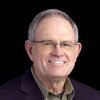Hello Visitor! Log In
Original Minds: Sri Aurobindo – Integral Scientist
ARTICLE | October 17, 2017 | BY Walton Stinson
Author(s)
Walton Stinson
Editorial Note: This article is the first in a new series on individuals of the past and present who offer fresh perspectives and fundamental insights into the nature of reality, social processes and humanity’s place in the world.
Sri Aurobindo was a multifaceted man, viewed in different ways by different people. To some he was a spiritual or religious figure, a poet and philosopher, and to others he was a political activist and a leader of India’s independence movement. Just as significantly, he was also a scientist.
“The big questions about the meaning of life are the most important questions of all because the answers (or absence of answers) establish the context for all choices about how to live one’s life.”
Science was not always as it is today, unwilling to acknowledge a “final cause” or to espouse theories about the nature of the “non-material reality”. In fact, even a cursory look at science from Pythagoras through Galileo reveals a completely different set of ethical rules for the conduct of scientific investigation than exist today. While the strict focus on the material/physical world may have had its origins in early conflicts over church doctrine in which the church prevailed, the situation today reflects the enormous success by the scientific establishment in raising humanity’s standard of living and it is completely self-imposed. A figure like Pythagoras, for whom mathematics was simply a byproduct of his larger interest in the non-material realm, would find this situation unimaginable.
Sri Aurobindo was certainly a scientist. However, he was not a part of the scientific establishment, or any establishment for that matter. As such, he was not constrained to limit his inquiry to the empirically verifiable and in fact took on as his primary objective the creation of a “unified theory”. (The word ‘science’ originally meant “the state or fact of knowing”; knowledge, as opposed to intuition, beliefs, etc. It also means “systematized knowledge derived from observation, study, and experimentation carried on in order to determine the nature or principles of what is being studied.”)
Published in his book The Life Divine, his theories provide a cohesive, rational, and logical construction of the nature of existence. Its reputation as “dense and unapproachable” is a direct result of his desire to explain completely the reasoning process which led him to the conclusions that he draws. It is as if he is inviting anyone capable of following his reasoning to judge for themselves the quality of his conclusions.
Not possessing his intellect or education, few readers have the capacity to follow, much less critique, the reasoning. However, and here’s where Human Science comes in, the true test of the theories of The Life Divine is not in examining the reasoning, but by examining the results obtained by applying the fundamental principles it clearly identifies. These principles all have one thing in common. They rest on a central idea that life emerges from consciousness rather than vice versa.
New principles of accomplishment that emerge from this “radical” shift in perspective can be applied to any field of life. Moreover, the results are not dependent on holding a particular faith or belief system. In fact, Sri Aurobindo discouraged attempts to divinize himself or his work. As a scientist, he clearly desired his theories to stand on their own merits.
The big questions about the meaning of life are the most important questions of all because the answers (or absence of answers) establish the context for all choices about how to live one’s life. In the past, it was impossible to inquire deeply into this subject without being labeled an empiricist or a theologist. Sri Aurobindo’s work projects this inquiry, once again, into the realm of science.


